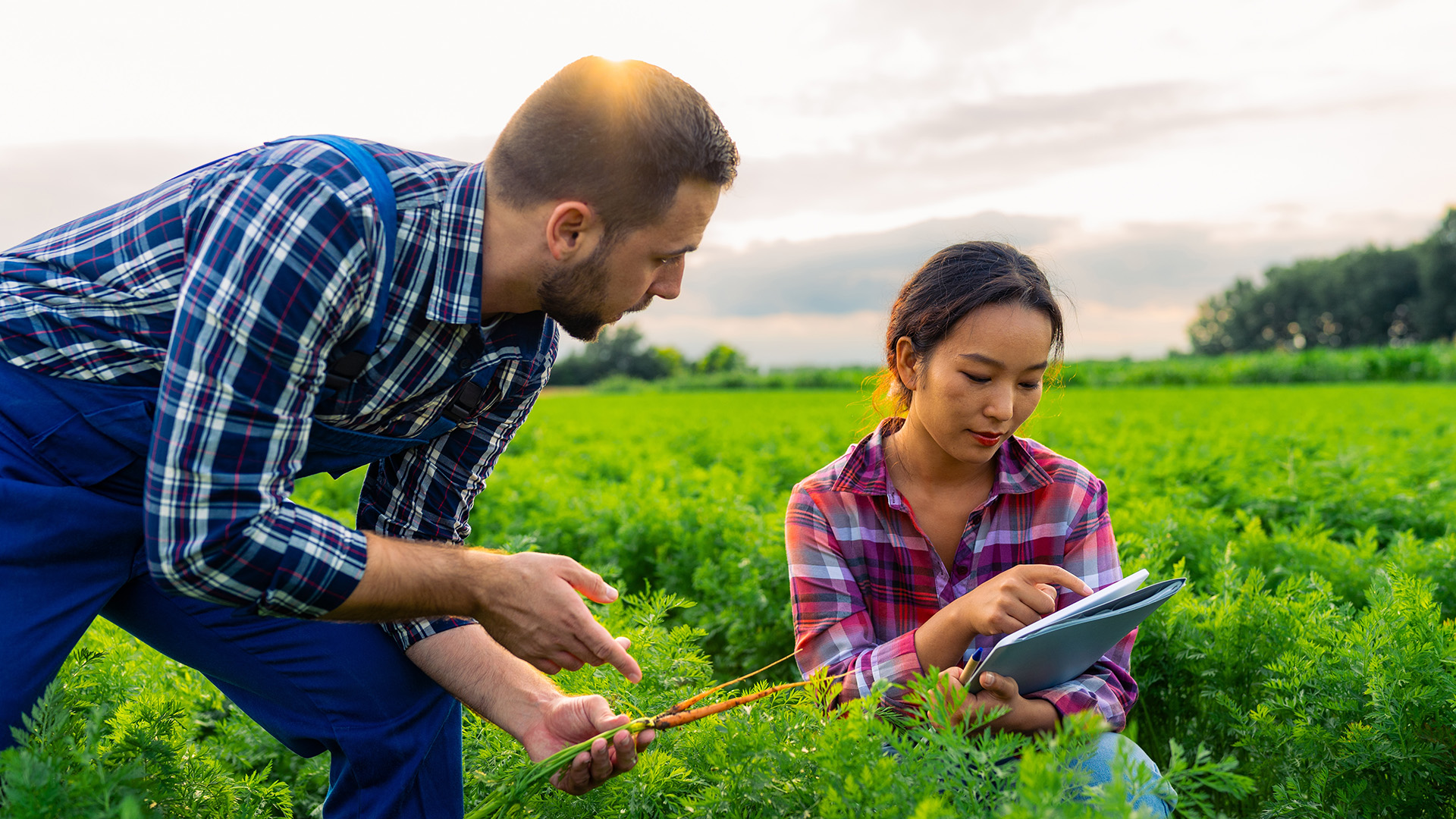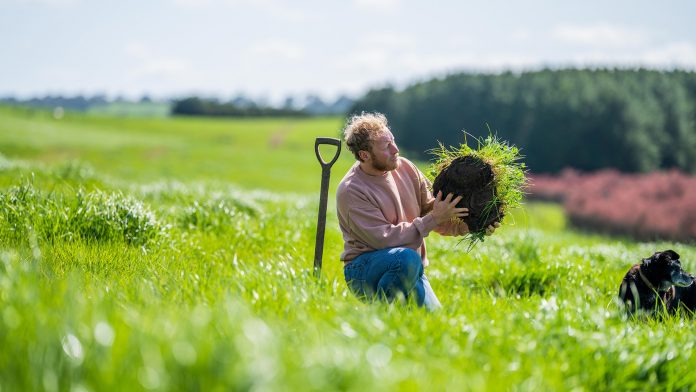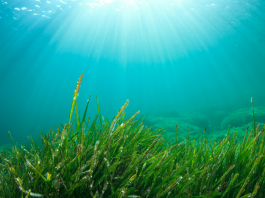The Innovation Platform spoke with Harry Wright, CEO of Bright Tide, about the significance of regenerative farming in promoting biodiversity, improving resource circularity and supporting farming communities.
IN the face of climate change and a growing population, sustainable agriculture and aquaculture offer a path forward to feeding the world without depleting its resources. It is an innovative approach to food production, designed to restore and protect our ecosystems, while supporting our farmers and communities.
Bright Tide is currently establishing the Regenerative Farming Accelerator Programme which aims to promote and support technologies and practices that engage with sustainable farming. The Innovation Platform Editor, Maddie Hall, spoke with CEO, Harry Wright, to learn more about the programme and its potential impact.
Can you explain what is meant by sustainable agriculture, and why it is important?
Sustainable agriculture, or regenerative farming, essentially involves new farming models which increase the resilience of ecological systems, rather than extracting from these systems solely to achieve market returns. Regenerative farming has no set definition, it encompasses a wide variety of technologies and sectors who are all working towards this common goal.
Currently, 50% of the world’s agricultural land is degraded, about a third of global fisheries are pushed beyond their biological limits, and many of the fish stocks around the world are overfished to the point of collapsing. Around half of the fish we consume comes from farmed fish. Scotland has a billion-pound salmon fishing industry, but elsewhere within the UK, the aquaculture industry is struggling and needs attention.
Issues such as the Ukrainian crisis, have brought the topic of food security to the forefront, and with around 71% of the land in the UK being farming land, sustainably farming this land is now vital for our future food security.
Supporting agricultural systems is important in the transition to net zero. Agriculture is responsible for around 11% of our total greenhouse gas emissions, despite only representing around 0.5% of our GDP. The world is being pushed to its limits and regenerative farming can play a really important role in nature recovery and increasing biodiversity.
What are some of the sustainable practices and technologies that have been implemented? Are there any currently in development?
There is considerable variation in the ways different farmers and technology are tackling regenerative farming. We have seen applications from new entrant regenerative farmers working on produce, considering how they can engage in livestock farming, arable farming, and dairy farming, all while reducing their use of fertilisers.
Others are looking at overcropping, aiming to increase biodiversity within the acreage they own. We have also seen the use of biochar or bio stimulants to improve soil health, to try and reintroduce nature, and then farm that land in a nature-friendly way. Planting hedges or designating part of their acreage for wildflowers to bring back pollinators, are only a couple of examples of how farmers can restore ecology.
Technology is being employed to help farmers make that transition to more nature friendly techniques. Much of the focus is centred around data gathering, measuring, and monitoring biodiversity, looking at improving animal health and welfare.
There is also a significant push towards sustainability in aquaculture, both onshore and offshore. Mussel farmers, for example, have muscle lines which are purifying the water. Oysters, too, are brilliant at water purification, bringing back biodiversity, storing carbon and removing excess nitrogen the water. Innovative technology is being utilised at fish farms, to reduce fish lice, improve fish health, develop our data around fish safety and reduce the number of farm fish escaping – which then breed and impact native and wild fish species.
Onshore, the focus is on areas such as shrimp aquaculture. Fishing shrimps is highly unsustainable due to the huge amount of bycatch. This is also having a huge impact on mangrove ecosystems around the world. The programme has received a few applications offering solutions for this, centring around sustainably using aquaculture on land to mitigate the effects offshore.
We need technology that can help farmers transition without additional financial burdens and responsibilities. The landscape is currently tough for farmers and the more support they can receive through technology and compensation, the more likely sustainable change can be implemented. Receipt of benefits such as biodiversity credits or natural capital credits, would also open and diversify revenue streams for farmers, providing some financial relief as well as helping increase biodiversity and implementing sustainable farming practises.
Technology can also be used to support farmers throughout the supply chain. The pandemic saw a growth in subscription food and delivery models, and we are beginning to see farmers utilise digital platforms to sell and market their produce.We have seen a couple of farms, for example, use delivery mechanisms to deliver locally. The challenge is scaling this up to become a more sustainable model and connecting these small farmers directly into supply chains of supermarkets and other FGMC customers.
What is the Regenerative Farming Accelerator Programme and how will it promote sustainable agriculture in the UK?
The main purpose of the Regenerative Farming Accelerator Programme is to provide a platform that can offer technical support and raise awareness for the incredible entrepreneurs in the UK and globally working on regenerative farming practises. In total, we will onboard a cohort of twelve regenerative farming businesses onto the programme, including six land-based farming ventures and six ocean-based farming ventures. Our programme is supported by seven fantastic organisations, that will be providing support to the ventures throughout.
The accelerator programme is split into three different pillars.
The first is a series of in-person networking events, devised with the purpose of providing an avenue for the entrepreneurs to highlight their work to potential investors, MPs, corporates, potential customers, and industry experts. This also involves several prestigious keynote speakers, people really engaged in sustainable agriculture, such as Vincent Doumeizel – a key figure in the seaweed industry. Our launch event will be at the House of Commons and shall involve around 150 guests invited to support and network with the ventures.
With these events, we intend to bridge the gap between entrepreneurs and the private sector, helping them to access potential clients and supporters. As such, the discrepancy between the support available to entrepreneurs in fintech, blockchain technology or healthcare technology, and those focused on biodiversity and regenerative practices, is extraordinary. We aim to help address this imbalance.
We then run an eight-week, primarily virtual, programme, that aims to provide a range of technical and pro bono support to those entrepreneurs. This support spans a variety of subjects ranging from legal support to investment readiness sessions, developing revenue models and finance options, to PR, marketing, workshops from experts working on biodiversity monitoring and data collection, and industry specific workshops from experts in the regenerative farming sectors.

Peer to peer sessions also enable us to discover common challenges across different sectors of agriculture and aquaculture and is a great platform for knowledge sharing. From this, we can consider how to address these challenges collectively and better understand how we can solve them, including advocating for policy changes when necessary. The final stage is an exclusive pitching event in London where each of the ventures will have the opportunity to pitch in front of a room full of investors, potential customers, private sector organisations and industry experts. All the ventures will then be invited to join our growing alumni network and invited to future events.
There is no fee for the programme, it is purely a platform to support and promote the future of the regenerative farming industry. We also have a communications agency and PR coverage to provide social media and marketing coverage that can further share the work of entrepreneurs in sustainable agriculture.
Traditionally, when we think of farming, we might think of fields and crops, the programme spans across land and sea. Why is it important to address sustainable farming both on land and at sea?
Firstly, we’re running out of land. The UK, as a small island state, is surrounded by so many incredible solutions in the seas and around our coastline. However, there is a huge lack of attention and awareness of the potential for sustainable aquaculture, both around our coastline and in the ocean.
Fish is the protein source for over a billion people around the world. We have marine ecosystems like seagrass, kelp, and salt marshes, that sequester massive amounts of carbon and biodiversity, considerably more than terrestrial landscapes. These can also prove sustainable fisheries and nurseries for fish.
There is a huge amount of interdependence between farming on land and sea. Nitrogen runoff and pollution from chemicals used on land is massively impacting ocean farming and ecosystems. Part of the programme aims to understand, the corresponding impact of land-based regenerative practises on the ocean and outline how the ventures from the programme can address these important issues.
Aquaculture is an area of vast, untapped potential: only 1-3% of committed climate finance goes into supporting the blue economy; Sustainable Development Goal (SDG) 14 – life below water – is the least funded of all the SDGs.
The coasts and the ocean are a vital resource that could also present an opportunity in the UK for creating new, green, and sustainable jobs, especially in our coastal communities which are suffering from high levels of unemployment and social deprivation. Yet, without investment and support, it is challenging to see these industries grow and scale to their full potential and also attract new entrepreneurs (especially young people) into the aquaculture industry and attract new sustainable development opportunities in these areas.
Can you share some of the challenges of implementing sustainable farming practices? How can these be overcome?
A significant challenge is a lack of understanding, awareness, and education. As part of our work with private sector clients, we aim to increase understanding of what the term regenerative means and how it can be applied to the business world. Although the term organic, for example, is well known, few really understand how food is produced, and how the industry could be maximised to increase efficiency, improve biodiversity, and provide green, sustainable jobs. Moreover, there is a growing requirement for corporates to act around nature and biodiversity and adopt new regenerative practices within their supply chain and investment portfolios.
Financing is a major challenge. Many traditional farmers are struggling and there is a growing need to support farmers with the transition to adopt and implement more regenerative practices. Of course, with that comes cost and an increase in capital expenditure. There is also a requirement to help regenerative famers access more flexible and patient forms of capital. This could be in the form of a loan, grant, or lower interest rates for farmers engaged in sustainable practices – all of which can help manage overheads and expenditure costs.
A seaweed farm, for example, requires the construction of a bioprocessing plant, considerable engineering work, substantial lease costs and all the relevant equipment. Unlocking private sector capital to support capital expenditure and research and development costs, could help kickstart the industry in the UK and remove financial strains for regenerative farmers.
There is a need for consistent policy, guidance and legislation concerning the regenerative farming industry in the UK. Farmers need clarity and certainty about the long-term direction of policy, and also incentives to adopt new nature friendly farming methods. Setting long term policy goals can also help provide certainty for investors and encourage more flows of private sector finance into the regenerative farming sector.
The industry is also hindered by a lack of technical support – training and transitioning the workforce to engage in regenerative farming. The government has increasingly focused on upskilling emerging areas such as digital marketing, and this has been a successful initiative. There is some fantastic work going on to help provide training services to aquaculture experts and seaweed farmers in the UK (for example, Ecocascade CIC), but I think there is an opportunity for government to do more to support existing farmers and bring new farmers into this space. There is also a golden opportunity to incentivise peer-to-peer learning and farmer to farmer education to catalyse transformative actions from those who have not yet started their regenerative journey.
One aspect of this is also helping to boost market demand for regenerative products. For example, the seaweed industry in Europe is very much in its infancy, and 90% of seaweed farming is in China and Southeast Asia. The challenge is in making the seaweed industry mainstream in the UK and globally, as with this could come the incentives and legislation that may drive the industry and bring its prosperity.
What kind of practices and policies need to be implemented to see real change?
Support is key to securing real change in the farming industry – both financial and technical. Co-financing between the government, social organisations, private equity firms, and private capital can play a key role in establishing new funding streams. It is important to finance those farmers that want to implement nature friendly techniques. Peer to peer learning is equally important in sharing knowledge and experience across the industry. Successfully implementing sustainable and regenerative practices will require extensive and widespread technical knowledge and industry expertise.
Universities, too, can play an important role in facilitating research and training a next generation of aquaculture experts and farmers. Education is incredibly important in raising awareness, and this can start early, with funded PhDs, and opportunities to support farmers with biodiversity, monitoring, and baselining. Farmers equally must understand what it is they’re trying to achieve. Essentially, as a country our understanding of biodiversity and marine biodiversity must improve, among policymakers, farmers, and the population alike.
Collaboration is integral; we need to work with stakeholders, policymakers, and the community. In particular, we need to engage local stakeholders, fishing and coastal communities, and highlight the benefits that can come with aquaculture. Industries such as seaweed farming hold great potential for communities, creating jobs, increasing fish stocks, and reintroducing biodiversity.
Finally, it is important that accelerator programmes such as ours continue and expand. There is a need for specific programmes that push specific entrepreneurship. Accelerator programmes provide entrepreneurs with free technical experience, a wealth of opportunities and networks to help them succeed. With a focus on regenerative farming, we are fostering these peer-to-peer networks and gaining a greater understanding of the issues that need to be resolved and collaborating with the relevant people to implement change.
Please note, this article will also appear in the sixteenth edition of our quarterly publication.









